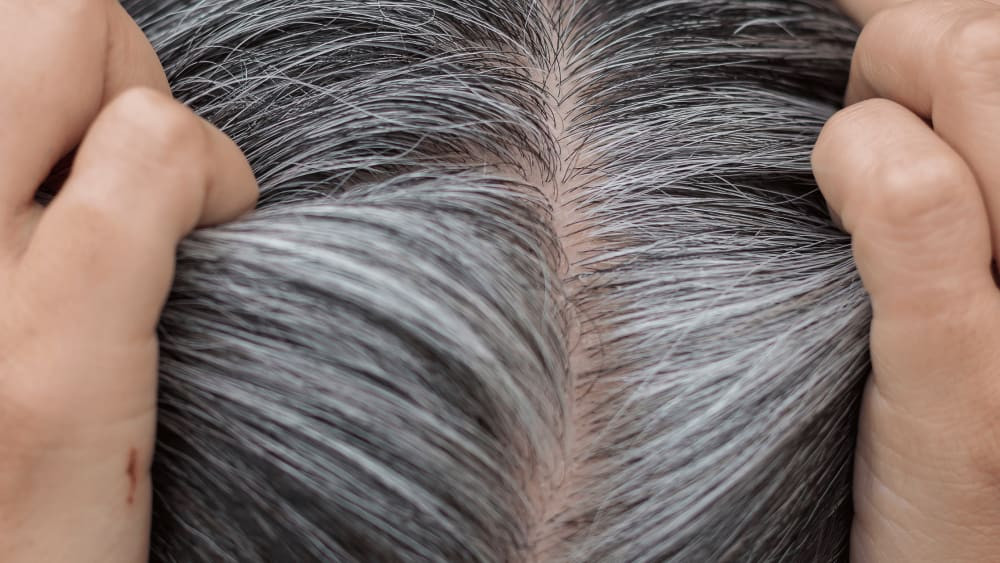Why Does Hair Turn Gray?
Most of us spend our adult lives waiting for them to arrive, and many individuals get their first considerably sooner than they expected.
Although grey is a popular hair color in some 'hipster' circles, many men and women spend hours, as well as hundreds or even thousands of dollars, trying to cover it up. But, first and foremost, why does our hair become grey?
Melanin pigments, which are also responsible for the color of the skin and eyes, grow in our hair follicles to generate a variety of various colors, so you can thank them for your attractive brown, blonde, or red locks. Two forms of melanins – eumelanin and pheomelanin – must be present for this hair color to be determined.
Human hair grows in a cyclical pattern, with each follicle going through three distinct phases. The first, known as the anagen phase, lasts three to five years and results in hair growth of around half an inch every month. Following this, the hair enters the catagen phase, a brief transitory period during which follicles stop releasing pigment and hair growth is halted. Finally, the hair enters the telogen phase, during which the hair is liberated and falls out. The hair follicle is dormant for three months before the anagen phase resumes.
However, some pigment-producing melanocytes (melanin-producing cells) become injured and die at the conclusion of each telogen phase. If the melanocyte stem cell reservoir at the top of the hair follicle can replace the bulb, pigment production will resume. However, once this reserve of stem cells is depleted, hair begins to grey.
It is estimated that by the age of 50, more than half of the population would have lost the color in 50% of their hair, with males having more grey hair than women. However, there is no evidence that this greying is related to stress, food, or lifestyle.
Certain autoimmune illnesses, such as alopecia areata, attack pigmented hairs, causing greys to appear and creating the impression that the hair is mostly that color. Other disorders, such as accelerated aging syndromes, Hutchinson-Gilford progeria, and Werner syndrome, destroy pigment cells and cause grey hair development. However, these only account for a small portion of greying; the rest of us are at the mercy of our genes.







